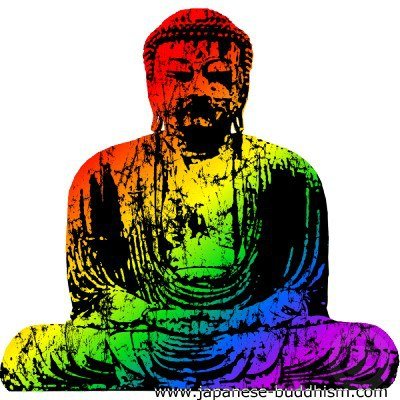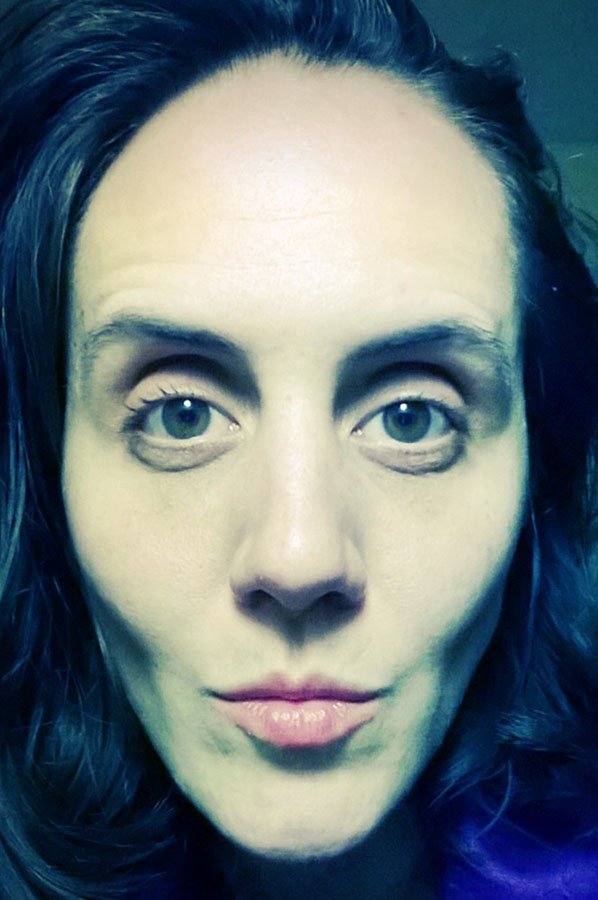Mormons Do It. Why Not Buddhists?: Why LGBTQ-Supporting Buddhists Won’t Speak Up in the Marriage Equality Struggle
Mormons Do It. Why Not Buddhists?
Why LGBTQ-Supporting Buddhists Won’t Speak Up in the Marriage Equality Struggleby M. Sophia Newman The national struggle over marriage equality appears to have entered its final round. Thirty-seven states now allow full marriage equality, and last year, court cases in Utah and Virginia ended in pro-equality rulings – plus requests from both sides for the US Supreme Court to review the cases and render its opinion. A decision will be complete by mid-2015.But while equal treatment is prevailing, rifts aren’t entirely healed. The struggle for gay rights has pitted identity politics against religious values – and while protests for “biblically correct” marriage are waning, an Alabama Supreme Court justice ordered a suspension of same-sex marriage licenses in February, Indiana instituted a discriminatory “religious freedom” law in March, and 2016 Republican presidential candidate Ted Cruz seems committed to a pro-religion, anti-equality stance.Yet religious opponents of gay marriage do not speak for all people of faith. American Buddhists, for example, have a progressive political leaning, a unique LGBTQ history, and a philosophy that generally accepts non-heterosexual relationships. An April 2015 American Values Atlas poll found 84% of Buddhists support gay marriage. Yet as a national debate has pitted religion against equality heads to its national finish line, maybe we should ask: why have pro-equality Buddhists been so silent on this issue?
The national struggle over marriage equality appears to have entered its final round. Thirty-seven states now allow full marriage equality, and last year, court cases in Utah and Virginia ended in pro-equality rulings – plus requests from both sides for the US Supreme Court to review the cases and render its opinion. A decision will be complete by mid-2015.But while equal treatment is prevailing, rifts aren’t entirely healed. The struggle for gay rights has pitted identity politics against religious values – and while protests for “biblically correct” marriage are waning, an Alabama Supreme Court justice ordered a suspension of same-sex marriage licenses in February, Indiana instituted a discriminatory “religious freedom” law in March, and 2016 Republican presidential candidate Ted Cruz seems committed to a pro-religion, anti-equality stance.Yet religious opponents of gay marriage do not speak for all people of faith. American Buddhists, for example, have a progressive political leaning, a unique LGBTQ history, and a philosophy that generally accepts non-heterosexual relationships. An April 2015 American Values Atlas poll found 84% of Buddhists support gay marriage. Yet as a national debate has pitted religion against equality heads to its national finish line, maybe we should ask: why have pro-equality Buddhists been so silent on this issue?
American Buddhists have a progressive political leaning, a unique LGBTQ history, and a philosophy that generally accepts non-heterosexual relationships.
“I'm not aware of any Buddhist organizing on this issue, nor do I know any Buddhist individuals involved in it,” says Michaela McCormick of Shambala Center in Portland, Oregon. The silence seems a bit odd. True, the number of Buddhists in America is small. But that cannot totally explain their absence from the debate. Mormons, who are also a mere sliver of the population, played a pivotal role in the passage of Proposition 8, a 2008 ballot measure to illegalize gay marriage in California. The Jesus Christ Church of Latter Day Saints embarked on the Prop 8 battle in a state where few of their number reside. It’s the same state where some 40% of American Buddhists (both those of Asian Buddhist heritage and converts) live. Yet Buddhists maintained collective silence in California – and have stayed whisper-quiet since.“I don’t think there is a philosophical opposition,” to gay rights, Kosa Joe Schuman, a community leader at Chicago Zen Buddhist Temple, says. (Full disclosure: I sometimes attend this temple.) Schuman says he’s never encountered hostility about his Sunday talks on his personal experiences as an openly gay man. That’s not due to an attitude of submission to leaders, he says: “I have gotten pushback or negative remarks” on other talks with political content.Even if American Buddhists did care to defer to authority, it’s not clear what leader would advise a negative stance. True, the Dalai Lama spoke out against male homosexuality some years ago. But he’s publicly reversed his stance – and he is not a central or absolute authority, but rather the leader of a small subset of Buddhists worldwide. Prominent Western teachers have voiced support for marriage equality, and Buddhist groups made up of mostly Asian-Americans, such as Jodo Shinshu, Soka Gakkai, and Buddhist Church of America, have all quietly supported (PDF) gay members and same-sex marriage for decades.The Buddha himself might have agreed, although historical Buddhism offers equivocal information. Remarks on non-heteronormative relationships do appear in teachings from the time of Buddha, where they range from condemnation to neutrality. Many ancient writings refer to a category of people called “pandaka,” an ambiguous word that appears to refer to homosexuals, intersex persons and, as Wikipedia puts it, “those whose sexuality changes every half month” (teenagers?). The Buddha is thought to have never lectured against homosexual relationships.If anything, historical Buddhism leaves a lack of directives of who or how to marry. This relates to the monasticism of early Buddhist adherents, who renounced householders’ lifestyles, including spouses, to become celibate monks and nuns. The faith more or less persisted that way until after the religion reached Japan a millennium later, and its emphasis on family life remains far less pronounced than in the Abrahamic faiths. As a result, Buddhism seems to have grown neither restrictions nor recommendations on who can be a family.There has been no particular emphasis on who can be a couple, either. True, Buddhism exhorts followers to avoid “sexual misconduct,” and some ancient teachers (such as Shantideva) classified gay sex as such. But very few Buddhists, ancient or modern, appear to disdain LGBTQ partnerships as “misconduct,” and Chinese Chan and Japanese Zen traditions included open acceptance of homosexuality centuries ago. By the fifteenth century, Zen master Ikkyu Sojun wrote extensively of his sexual trysts with men and women. In fact, Buddhist history scrambled gender binary altogether. In the last century, the first female-to-male transgender person to receive a sex-change operation, a Briton named Michael Dillon, also studied as a Buddhist monk in Ladakh, India.Non-heterosexual Buddhist leaders are still present today. The Village Zendo’s Enkyo Pat O’Hara and Kwan Seum leader Soeng Hyang, both of whom are lesbians, are examples.Buddhist history includes daring Buddhist acts in support of LGBTQ people, too. In the 1980s, an openly gay, HIV-positive Buddhist priest named Tommy Issan Dorsey helped to open a hospice as an offshoot of his Zen center. The hospice responded to the needs of gay men affected by the HIV/AIDS epidemic in San Francisco – at a time when HIV/AIDS transmission was not understood, many social services refused to take AIDS patients out of fear, and gay people were much farther outside the mainstream than they are now. Soon after, an organization called Zen Hospice Project opened to serve the same population. That organization still exists.
In the 1980s, an openly gay, HIV-positive Buddhist priest named Tommy Issan Dorsey helped to open a hospice as an offshoot of his Zen center... at a time when HIV/AIDS transmission was not understood, many social services refused to take AIDS patients out of fear, and gay people were much farther outside the mainstream than they are now.
So Buddhists have lots of reasons to support gay marriage, a huge history to draw from, and no real blocks to full-on support. But American Buddhist efforts towards LGBTQ inclusion have never expanded, even while sexual minorities have gained acceptance nationwide, and Buddhist silence on gay marriage now comes standard. Why?The answer might be philosophical oppositions to identity politics overall – specifically the Buddhist concept of “non-self,” which attests to profound changeability in all living beings. Mostly intended as a starting point of metaphysical thought, the idea does not oppose the view that sexual orientations are permanent.But Joe Schuman at the Chicago Zen Buddhist Temple admits that the teaching interferes with activism: “We were having a debate in the temple about posting [a sign saying] ‘this is a welcoming congregation’ and including LGBTQ in that. The rationale given for [excluding] that was that you drop all your identities when you come into the temple.” Treating “non-self” as a plea for all humans to be treated equally was a daring radical act in the Buddha’s own time, Schuman says.Jason Bray, who with Michaela McCormick is an organizer of Portland Shambala’s Center Queer Dharma group, suggests that today’s Buddhists believe the issue was resolved before they showed up. “It’s not that anyone objected to the formation of [Queer Dharma] in any way,” he says, “But for some there was a mindset that since all are welcome to join our community, there was no need.”Schuman, McCormick and Bray admit, however, that Buddhists may be giving ourselves too much credit. Schuman cites the Chicago Zen Buddhist Temple’s tepid resolution to the debate on inclusive signage: “What we ended up with was, ‘We value diversity. All are welcome.’ I don’t think that conveys it to people who are facing up to 2000 years of oppression, which is still going on.”Bray says, “The unfortunate truth is that we live in a culture of implied exclusion. The predominant attitude of faith traditions toward sexual minorities has made many of us spiritual orphans.” He adds that many LGBTQ people remain unaware of Buddhists’ welcoming stance – and might be very interested if they did know. “The turnout for our first meeting was overwhelming… Only after the explicit public invitation were they aware that the LGBTQ community was welcome.”
'The unfortunate truth is that we live in a culture of implied exclusion… The turnout for our first meeting was overwhelming… Only after the explicit public invitation were they aware that the LGBTQ community was welcome.'--Jason Bray, organizer of the Portland Shambala’s Center Queer Dharma group
The American public’s ability to guess Buddhists’ intentions remains uncertain. But with the fight for marriage equality is all but won, there is little momentum for Buddhist activism now.Nonetheless, some Buddhists plan to enjoy the new laws. Schuman – who lives in Illinois, which began granting gay marriage licenses on June 1, 2014 – says, “Now that we’ve attained the legal right, I need to find a husband.”[divide style="2"] M. Sophia Newman is a journalist who began practicing Buddhism ten years ago. See more of her work at msophianewman.com or @msophianewman.
M. Sophia Newman is a journalist who began practicing Buddhism ten years ago. See more of her work at msophianewman.com or @msophianewman.